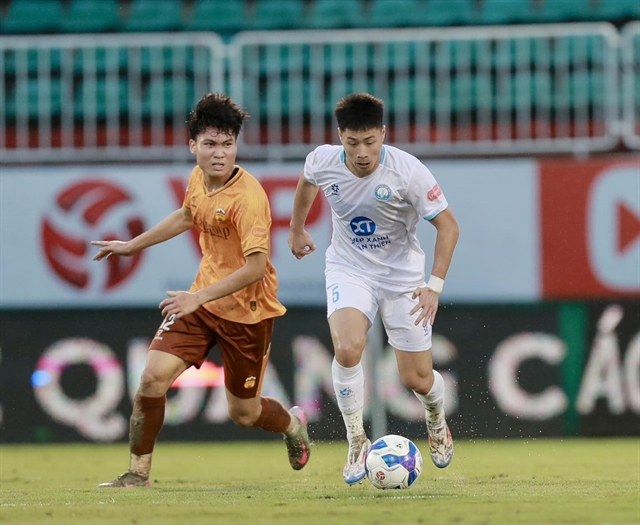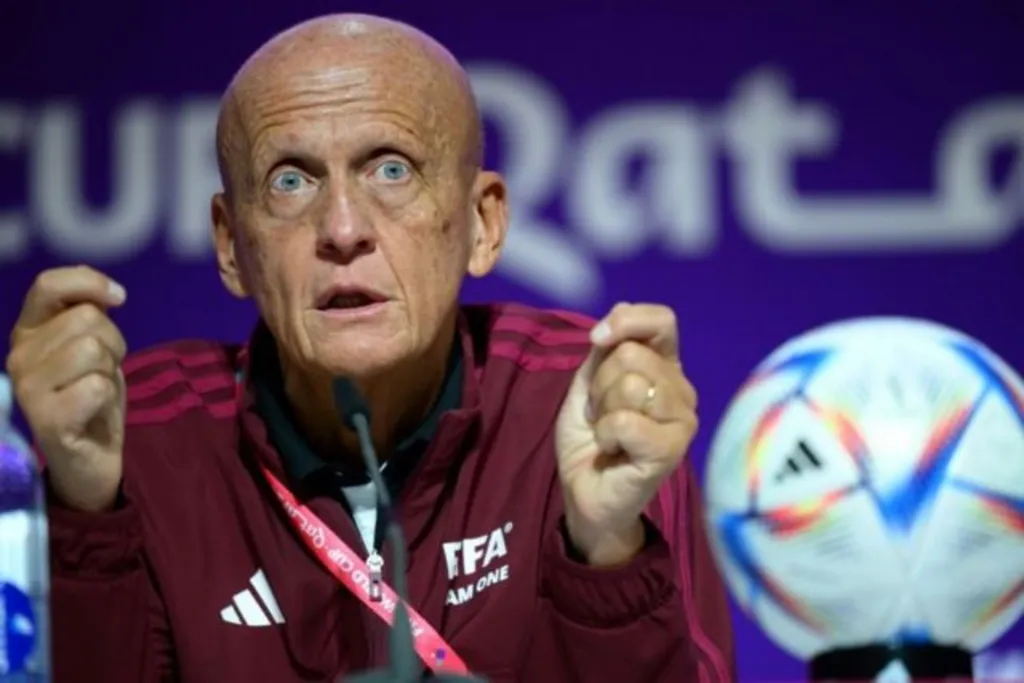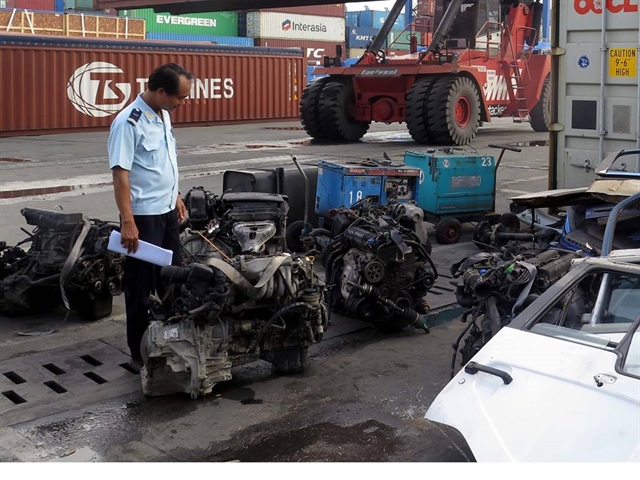 Sports
Sports

 |
| TIME TO SPARE: FIFA head of officiating Pierluigi Collina. AFP Photo |
{ "id": "zM0jCFam6Z", "type": "myToolImages", "data": { "data": "" } }
Peter Cowan
Former England forward and current crisps salesman Gary Lineker once famously said that football is a simple game, where 22 men chase a ball for 90 minutes and in the end, the Germans win.
The passage of time has made that phrase obsolete, and no, I’m not referring to Germany’s shock defeat to Japan.
At this World Cup it seems football is no longer played over 90 minutes, but closer to 110 minutes.
By now I’m sure we’ve all noticed the extraordinarily long periods of added time most matches in Qatar have had at the end of both the first and second halves.
England’s opener against Iran lasted a whopping 117 minutes (partly due to a lengthy injury stoppage), while Argentina’s defeat to Saudi Arabia weighed in at a hefty 111 minutes.
FIFA is behind the change to the norm, with head of officiating Pierluigi Collina telling ESPN prior to the tournament that those refereeing teams have been told to try to be more accurate with their added time decisions.
In the interview with ESPN, he mentioned goal celebrations, throw-ins and goal kicks as being key time wasters, though surely the time wasting that comes in through gamesmanship is a factor too.
The idea behind the initiative is one you can’t fault as after all, it’s much more entertaining to watch actual football being played than it is to suffer through a goalkeeper taking his sweet time restarting the action.
However, ironically, it’s the timing of this change that I have an issue with.
Collina claims FIFA brought this new point of emphasis in for the previous World Cup in Russia four years ago, however according to statistics compiled by Squawka, matches in that tournament averaged 98 minutes, whereas this year, games are going for roughly 103 minutes so far.
Five minutes of difference may not seem like a lot, but try telling that to a top-level footballer after they’ve covered more than 10km in a match, as many do.
You also have to factor in the fact that the longer a match goes, the more likely goals are to come.
Studies vary on how often injury time goals are scored, but one report on five Premier League seasons found that more than 20 per cent of matches featured a goal scored in added time at the end of either half.
More goals is of course a good thing, but not at the cost of tipping the competitive balance of the tournament, which is what this move risks doing.
To get back to our central subject of timing though, it’s the fact that this change has been sprung during the world’s biggest sporting event that really grates.
If the plan from Collina et al was always to introduce these new timing rules, why weren’t they in force during the qualifiers?
Mercifully, I don’t remember having to sit through 10 minutes of added time when Viet Nam took on Saudi Arabia or Japan in the Asian qualifiers.
Wouldn’t the two latter teams, who both qualified for the World Cup, have been better prepared for the tournament if they had the opportunity to play under these new rules?
Undoubtedly the answer is yes. One can only hope FIFA takes the time to introduce these rules for all its competitions going forward. VNS
 |
{ "id": "TgecMDWexh", "type": "myToolImages", "data": { "data": "" } }




